第17章 IV(5)
The poet Thomas Moore spent several months in Bermuda more than seventy years ago. He was sent out to be registrar of the admiralty. I am not quite clear as to the function of a registrar of the admiralty of Bermuda, but I think it is his duty to keep a record of all the admirals born there. I will inquire into this. There was not much doing in admirals, and Moore got tired and went away. A reverently preserved souvenir of him is still one of the treasures of the islands: I gathered the idea, vaguely, that it was a jug, but was persistently thwarted in the twenty-two efforts I made to visit it. However, it was no matter, for I found out afterward that it was only a chair.
There are several "sights" in the Bermudas, of course, but they are easily avoided. This is a great advantage--one cannot have it in Europe.
Bermuda is the right country for a jaded man to "loaf " in. There are no harassments; the deep peace and quiet of the country sink into one's body and bones and give his conscience a rest, and chloroform the legion of invisible small devils that are always trying to whitewash his hair.
A good many Americans go there about the first of March and remain until the early spring weeks have finished their villainies at home.
The Bermudians are hoping soon to have telegraphic communication with the world. But even after they shall have acquired this curse it will still be a good country to go to for a vacation, for there are charming little islets scattered about the inclosed sea where one could live secure from interruption. The telegraph-boy would have to come in a boat, and one could easily kill him while he was making his landing.
We had spent four days in Bermuda--three bright ones out of doors and one rainy one in the house, we being disappointed about getting a yacht for a sail; and now our furlough was ended, and we entered into the ship again and sailed homeward.
We made the run home to New York quarantine in three days and five hours, and could have gone right along up to the city if we had had a health permit. But health permits are not granted after seven in the evening, partly because a ship cannot be inspected and overhauled with exhaustive, thoroughness except in daylight, and partly because health-officers are liable to catch cold if they expose themselves to the night air. Still, you can buy a permit after hours for five dollars extra, and the officer will do the inspecting next week. Our ship and passengers lay under expense and in humiliating captivity all night, under the very nose of the little official reptile who is supposed to protect New York from pestilence by his vigilant "inspections." This imposing rigor gave everybody a solemn and awful idea of the beneficent watchfulness of our government, and there were some who wondered if anything finer could be found in other countries.
In the morning we were all a-tiptoe to witness the intricate ceremony of inspecting the ship. But it was a disappointing thing. The health-officer's tug ranged alongside for a moment, our purser handed the lawful three-dollar permit fee to the health-officer's bootblack, who passed us a folded paper in a forked stick, and away we went. The entire "inspection" did not occupy thirteen seconds.
The health-officer's place is worth a hundred thousand dollars a year to him. His system of inspection is perfect, and therefore cannot be improved on; but it seems to me that his system of collecting his fees might be amended. For a great ship to lie idle all night is a most costly loss of time; for her passengers to have to do the same thing works to them the same damage, with the addition of an amount of exasperation and bitterness of soul that the spectacle of that health-officer's ashes on a shovel could hardly sweeten. Now why would it not be better and simpler to let the ships pass in unmolested, and the fees and permits be exchanged once a year by post.